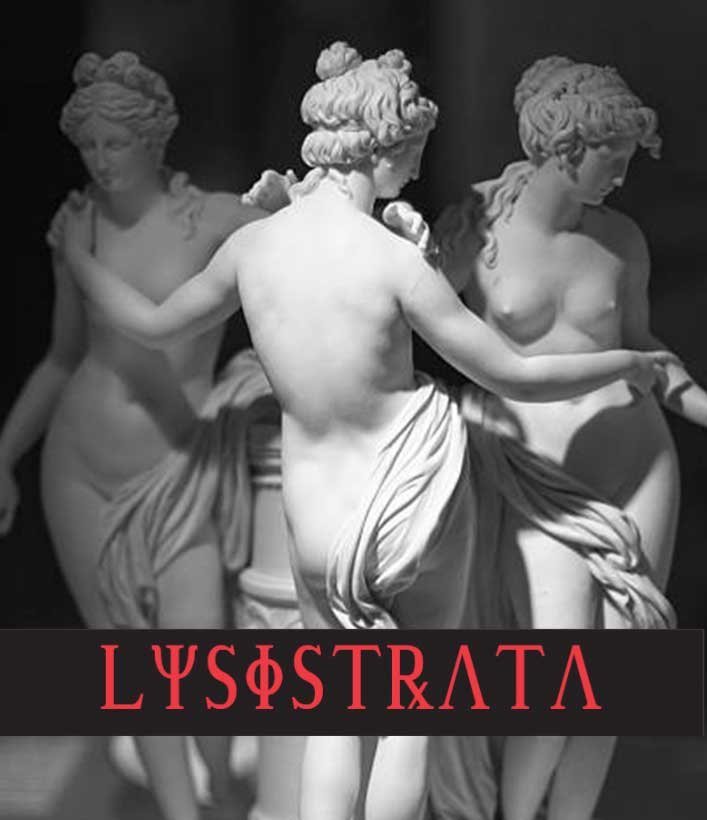In 2005, composer-librettist Mark Adamo—fresh off his first opera, Little Women—freely adapted, for his second, Aristophanes’s Lysistrata, the comedy about the women of Athens and Sparta who, disgusted by a pointless war, barricade themselves in the Athenian treasury and swear a sanction on sex until their men make peace. “Freely” is the key word here: the composer “…cut all but three scenes of the play, created new male characters, changed the war, and invented a wrangling romance between Lysistrata and the Athenian leader Nico. The opera imagines a woman who, at first, fakes political convictions so as to wreak on her lover an emotional revenge: only later must she ask herself, to whom does she belong, herself or her people? And its score sends its melodies searching through a labyrinth of mirrors; no sooner is a theme sung by one character, given one meaning, than it is assumed by someone else and inflected with quite another. The libretto suggests, ‘Each of you will tell the truth; neither will agree.’ The score aims to make that suggestion an audible process.”
Of its celebrated 2005 premiere, Alex Ross, in The New Yorker, wrote “It’s shocking how deep this seemingly lighthearted opera goes.” Twenty years after that debut, Gil Rose conducts and the composer directs an internationally accomplished cast in Boston’s first-ever staging of Lysistrata, to be recorded for release on CD by Pentatone.
“Gil Rose has decades of experience articulating scores for one-offs or short runs, and that translates into confident performances, like this one, of challenging works. Rose conducts firmly and never takes a measure off, and singers and instrumentalists benefit.” – Classical Voice North America




















